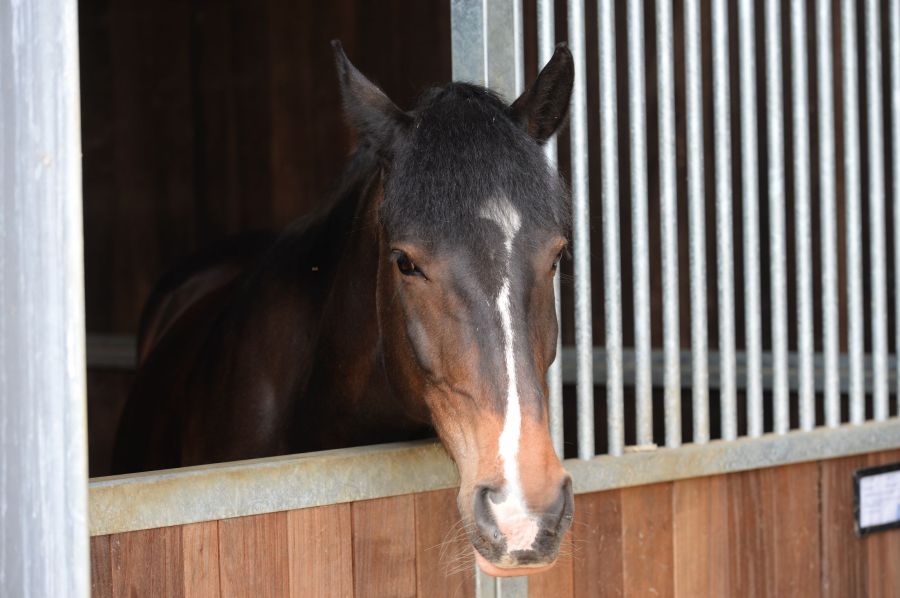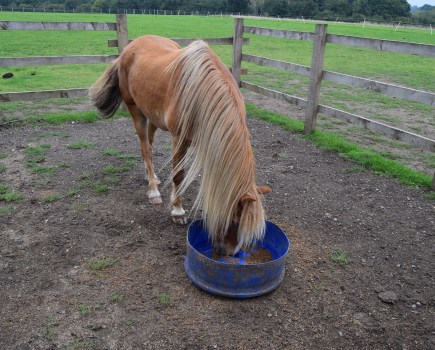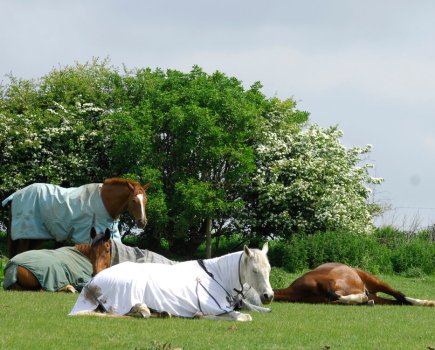More time in his stable and less turnout in the fresh air over the winter months can have a negative impact on your horse’s breathing and cause a respiratory disease or infection. Your horse’s respiratory system is very sensitive and even minor challenges, such as exposure to dusty bedding and hay, can affect his general health and performance. Symptoms can include a cough, a snotty nose and a drop in performance, and all are things you’d rather avoid when taking care of a horse in winter.
“Your horse’s lungs and respiratory system process air, which is fundamental in providing oxygen for life and performance,” states Gillian Higgins from Horses Inside Out. “Effective lung function is essential for optimum performance, so careful management of a horse’s respiratory system is needed. Problems relating to the lower respiratory system are generally a result of viral, bacterial or allergic reactions, which can result in a drop in performance from your horse.”
Making changes to the way you manage your horse can go a long way to helping your horse if their respiratory system is challenged. Some horses may also need additional support and this is when a targeted respiratory supplement may be beneficial when managing or preventing respiratory disease.
How to keep a horse’s respiratory system healthy
Here are a few management tips from Gillian that will help to minimise the risk of your horse suffering respiratory disease:
- Turnout your horse as much as possible. This is the best way to minimise your horse’s exposure to dust and is their natural environment.
- Feed from the floor to allow mucus to drain from the nostrils and keep the airways open to allow the respiratory tract to function as nature intended.
- Steam hay. This is an effective way of minimising the dust, bacterial and mould content of hay. Soaking hay can also help to reduce the level of dust in it, or an alternative is to feed haylage.
- Use low-dust bedding.
- Keep your stable clean and well ventilated. Decomposing droppings and urine increase the levels of ammonia, which is linked to poor respiratory health.
- Don’t muck out with your horse in the stable. This avoids the inhalation of dust, pollens and other allergens. Make sure your muck heap is sited well away from the stable too.
Feeding a supplement for respiratory disease
Respiratory supplements aim to soothe and support your horse’s airways in the fight against respiratory disease. Key ingredients to look for include antioxidants, such as selenium, vitamin E and vitamin C. Antioxidants are a key part of the body’s natural defences and have been shown to help support the lungs.
Other ingredients that can be included are:
- Coltsfoot leaves — these help expel mucus and catarrh, as well as soothe your horse’s throat.
- Echinacea — supports the immune system.
- Liquorice root — this soothes the membranes in the respiratory tract. It also helps loosen and get rid of mucus.
- Garlic — this is thought to cleanse the lungs and help expel mucus.
- Lemon — this is rich in vitamin C, as well as antioxidants.
- Aloe vera — to give your horse’s immune system a boost.
- Eucalyptus — to help clear and soothe your horse’s airways.
- Ginger — for easing nasal congestion and coughing in horses.
Areas of the respiratory system to target
When you’re considering buying a respiratory supplement it’s worth considering what area of the respiratory system you are wanting to help, as some supplements will target certain problem areas rather than supporting the whole respiratory system.
- Lungs — look for antioxidants such as vitamins C and E, which will support general lung health.
- Immunity boost — choose a product with ingredients that will boost your horse’s immunity, such as echinacea and aloe vera.
- Nasal passages — many products available will open your horse’s airways and help to clear mucus.
- Throat — some products include ingredients such as honey to soothe the throat.








